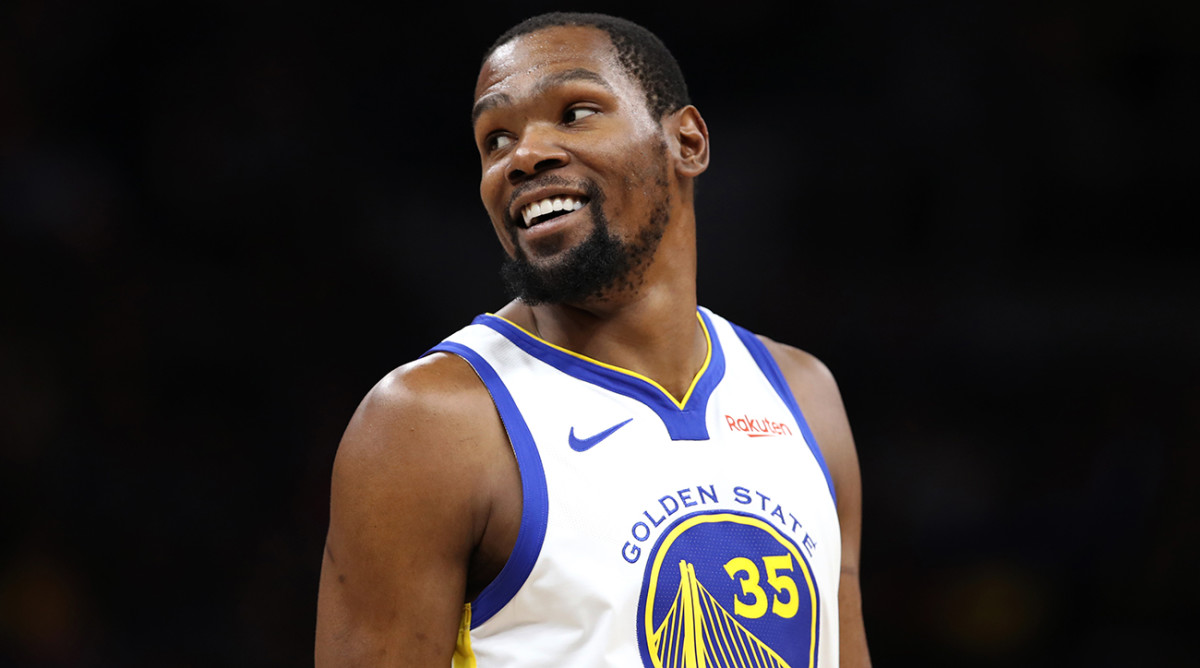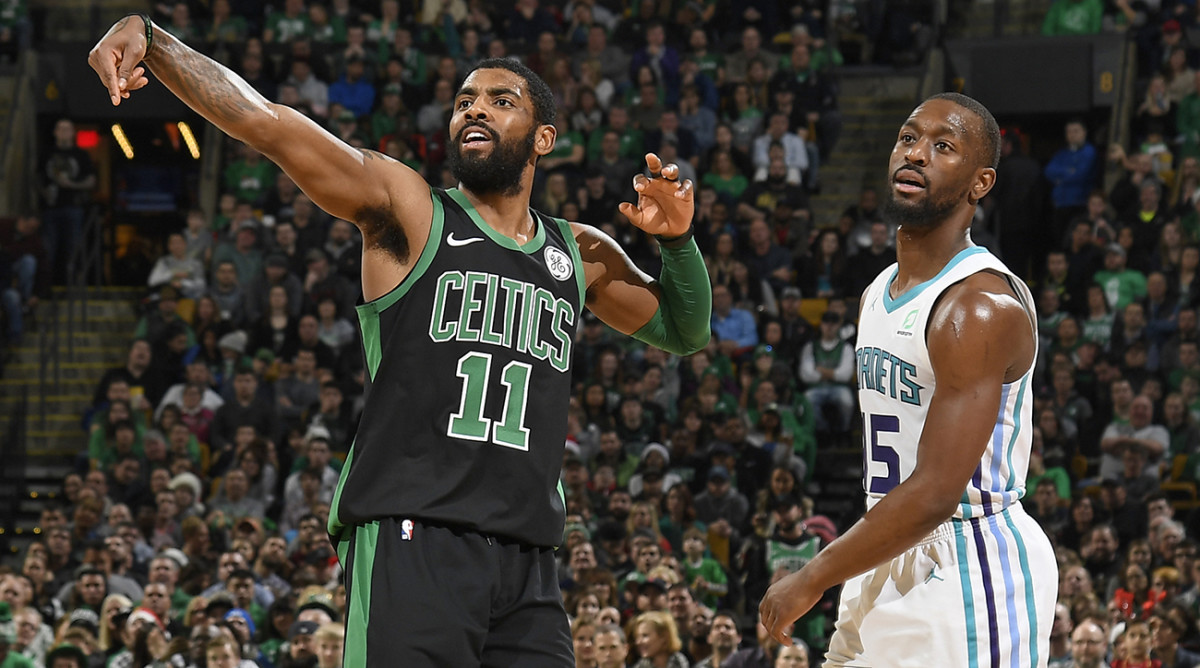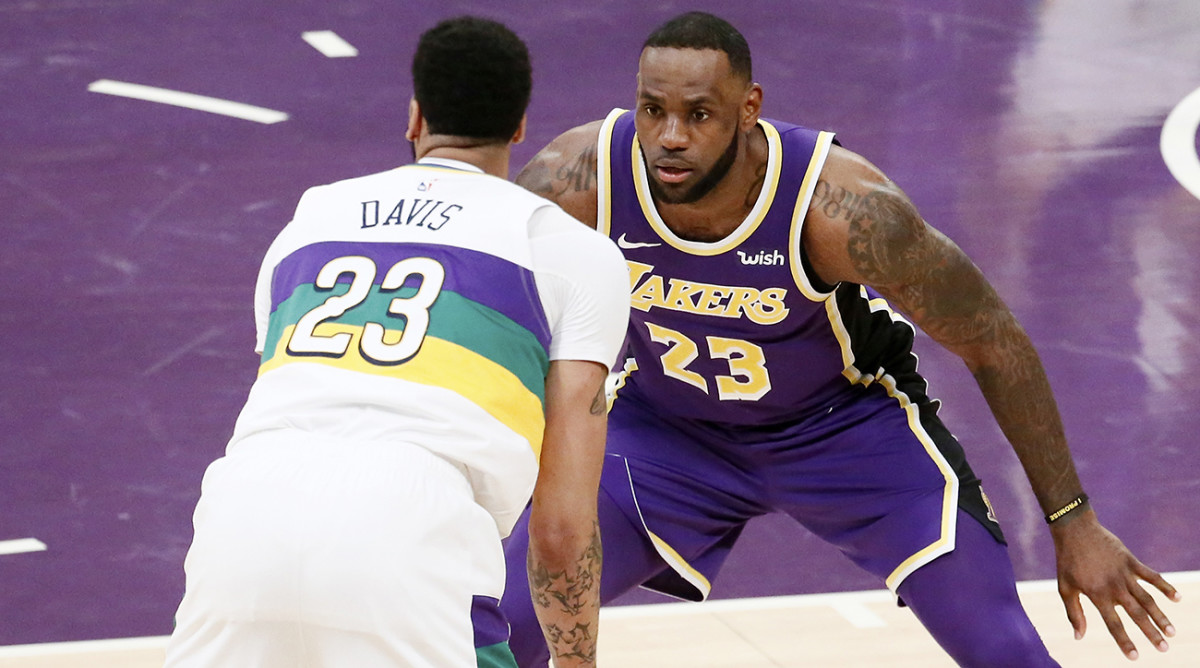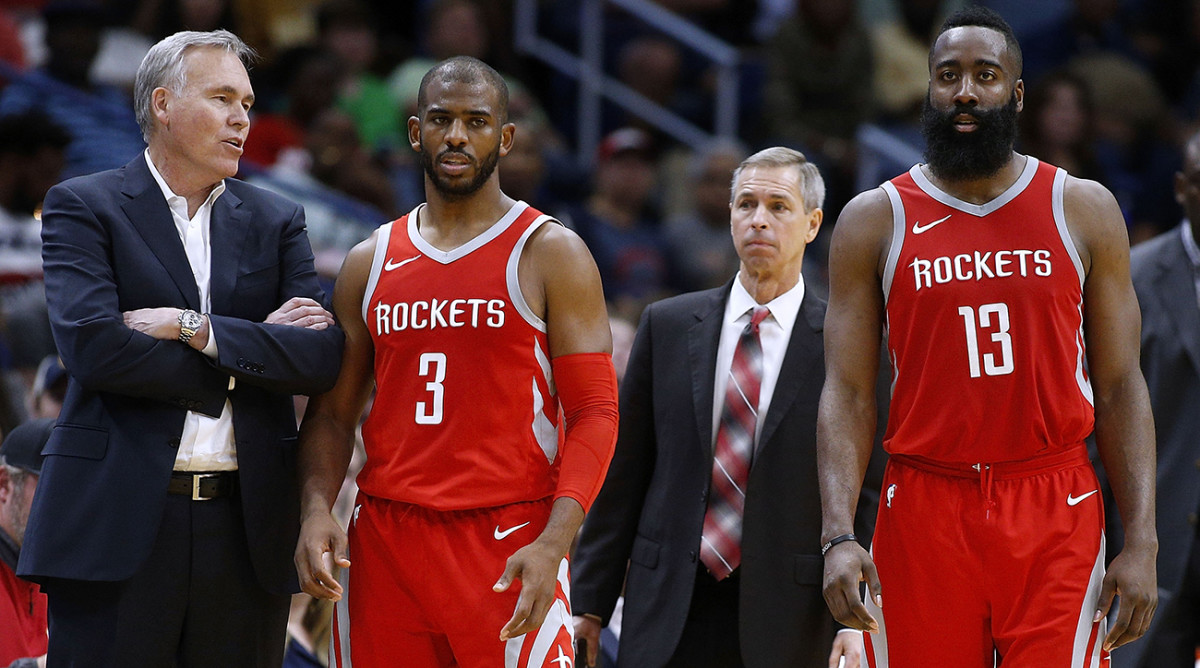2019 NBA Free Agency Primer: Rumors, Stakes and More Buzz

In the summer of 2016, the salary cap spiked and general managers lost their minds. Lavish contracts were handed out to the likes of Nicolas Batum (five years, $120 million), Joakim Noah (four years, $72.6 million) and Evan Fournier (five years, $85 million), among many others, contracts that in hindsight make the 2016 offseason the most bonkers in NBA history.
This summer doesn’t project to be quite so wild, but with twelve teams that can be projected to have least $20 million in cap room—and several others hovering right below it—there is money to spend. Marquee teams (Knicks, Lakers) have significant holes to fill while would-be contenders (Clippers, Nets, Celtics) will search for a missing piece. When the dust settles on the first tier of stars, the second and third tier players could cash in.
Let's examine a few key storylines going into free agency, along with other tidbits picked up in the last week …
The Summer of Kawhi
Let the debate rage about Kawhi Leonard’s place in the NBA hierarchy, though Leonard’s ability to strap the Raptors to his back and lead Toronto to its first NBA championship was the stuff legends are made of. Leonard enters free agency with none of the questions that dogged him in his final season in San Antonio. He’s healthy, at least healthy enough to play a load managed 60 games in the regular season and all 24 in the playoffs (an aside: expect load management to increase in the coming seasons, with the success the Raptors had with Leonard a big reason why). Leonard averaged career highs in scoring and minutes played per game, reestablishing himself as arguably the NBA’s preeminent two-way player.
Leonard’s is the rare singular free agency decision that could determine a champion. If Leonard returns to Toronto, the Raptors would be favorites to repeat. If Leonard bolts for the Clippers, L.A. has a roster that, with Leonard, would leapfrog into the favorites to win the West. If Leonard decided to join forces with LeBron James and Anthony Davis with L.A.—an idea several people familiar with Leonard’s thinking are skeptical of—the Lakers would have the foundation of a superteam.
Privately, the Raptors continue to express confidence in their ability to retain Leonard, and Toronto has done everything possible to sell Leonard on a future in the North. They have treated him like a franchise player. They have provided him with an elite medical staff that has kept him healthy, no small thing for a player who wondered if he would ever fully recover from the quad injury that derailed his ’17-18 season. And they won. Raptors officials hope that the powerful moments Leonard experienced in the playoffs—the buzzer–beater at Scotiabank Arena in Game 7 of the conference semifinals, the fourth straight win over Milwaukee on the same floor and, of course, the championship—will resonate with Leonard.
But who knows? Leonard had plenty of chances to indicate a desire to return last week, and offered nothing. And there are some around him that prefer Leonard in Los Angeles, where the Clippers have been shadow recruiting him all season. It’s possible Leonard could take other meetings—the Knicks, Nets and Lakers will try to get involved, as could Dallas, which has never shied away from chasing the big free agents—but for months there have been no indications that this is anything but a two-team race.
The ripple effects of Leonard’s decision could me massive. Toronto pushed all its chips in with Leonard; if he walks, the Raptors could auction off its vets (Kyle Lowry, Serge Ibaka, Marc Gasol) and rebuild around Pascal Siakam and Fred VanVleet. The Clippers were a fun story last season, but without Leonard they will struggle to make the playoffs. What Leonard decides this summer will reshape the NBA—again.

What About Kevin Durant?
The sight of Durant popping his Achilles in Game 6 of the NBA Finals was gut–wrenching. Durant takes plenty of flak for his hyper sensitivity to criticism—especially on social media—but he’s a generational player who was a driving force in the last two Warriors championships. And, to editorialize for a moment, he's a really good guy.
Durant likely won’t play next season—even if his recovery is on the speedy end, would his team really thrust Durant into a playoff environment fresh off rehab?—which honestly doesn’t change teams approach with him that much. The Knicks and Nets will offer full max contracts, willing to gamble on getting three good years from Durant for the price of four. Dallas—with Mavs owner Mark Cuban long coveting Durant—will try to get into the mix too.
The Warriors almost have to offer a five–year deal. Golden State has to feel partially responsible for Durant’s predicament, with some personnel from rival team medical people believing that Durant’s Achilles tear was more than just possible with him rushing back onto the floor with virtually no practice time to ramp things up. Warriors owner Joe Lacob has long contended that money won’t be a factor in Durant’s free agency, not with Golden State headed into the privately funded Chase Center next season. He almost has no choice but to offer to max Durant out.
The great unknown is Kyrie Irving, and whatever plans the two have hatched (if any) to play together next season. Brooklyn remains Irving’s preferred destination, per league sources. Before the injury, Durant seemed earmarked for New York, which dumped Kristaps Porzingis in January to clear the needed cap space to make the Knicks "Durant and Friends."
The Knicks would still sign Durant as a solo act, per league source, willing to swallow another lousy season developing prospects while being opportunistic in the trade market. But the Knicks have to be nervous about the influence of Irving, who could pull Durant to Brooklyn, leaving the Knicks empty handed and the world wondering (again) why they made the Porzingis trade in the first place.
Speaking of the Nets: The New York Post reported that Brooklyn is getting cold feet about bringing Irving in as a solo act. SI.com has been told the same. There’s little chance the Nets will pair Irving and D’Angelo Russell together, which would put Irving on a Nets team that is effectively Boston Lite, with a coach (Kenny Atkinson) that believes in the same things (the importance of getting better during the regular season, for starters) that Irving chafed at playing for Brad Stevens. There are other free agents that make sense for Brooklyn to utilize its $46 million in cap space ($67.6 million without Russell), including Jimmy Butler and Tobias Harris. Without them, though, bringing in Irving makes little sense, and there are plenty of people within the organization that know it.
Will both New York teams be happy? Will neither? The next few weeks will be really interesting.

What Now, Boston?
What a difference a year makes, huh? Last June, Boston’s ascent to the top of the east looked like an inevitability. Today, the Celtics are on the brink of losing Irving, will lose Al Horford unless they ratchet up their offer (there is league-wide belief that there is a four-year deal in the $100 million range for Horford, a far cry from what Boston hoped to lock him in at) and are once again an upstart young team a ways off from a championship.
But the Celtics are up to something. Boston’s draft-day maneuvering telegraph some broader ambition than just bringing in four new rookies. The decision to move Aron Baynes was curious. Baynes had just opted into a team friendly $5.9 million contract for next season. He’s wildly popular and the Celtics defense was at its best when Baynes was on the floor. On the surface, dumping Baynes as part of a deal to bring back a 2020 first–round pick was a head–scratcher.
But clearing Baynes’s salary pushed Boston’s cap room to $25.8 million, a number that jumps to $34 million if the Celtics renounce the rights to Terry Rozier. At the moment, it’s unclear who Boston could be targeting. Multiple reports peg Kemba Walker as a Boston target, though Walker made more sense with Horford in the fold. Malcolm Brogdon, a restricted free agent, has been discussed internally. There has been widespread speculation about Bradley Beal, but Beal is a favorite of Wizards owner Ted Leonsis and there is a feeling among some in Boston that it would take Jayson Tatum to pry Beal loose. For what it’s worth, Beal says he has been told by Leonsis that he would not be moved.
Does Russell makes sense? At 23, Russell fits Boston’s renewed youth movement. He’s coming off an All-Star season and thrived playing for Atkinson, which suggests he would adapt well to Stevens. If the Nets are forced to renounce Russell, several point guard starved teams (Orlando, Indiana, Phoenix, even the Lakers) will likely jump on him. But Boston could offer comparable money and a chance to win—in the same division as Brooklyn.
Russell—preferably at something less than the max—would be a nice save for Boston, and allow them to continue to shop its draft picks for another player. The Grizzlies top-six protected pick next year will be a nice carrot if another big name becomes available.

Hard Work Ahead for the Lakers
It’s tough to call acquiring a top-five talent like Anthony Davis easy, but when you consider the road ahead for Lakers GM Rob Pelinka, forking over nearly all of L.A.’s assets for Davis seems easy by comparison. The Lakers will effectively have seven players on the roster when free agency begins, three who constitute contender-level frontcourt (Davis, LeBron James, Kyle Kuzma), three inexperienced back benchers (Isaac Bonga, Jemerrio Jones and Mo Wagner, who have a combined 709 minutes of NBA game time among them) and a second round pick (Talen Horton-Tucker). They will have between $24 and $28 million to spend on the rest of the roster. They need to build a capable backcourt. It’s going to be a tall task.
(Aside, Part II: The Lakers have to build out the front office with more people who know what they are doing. ESPN reported that the Lakers didn’t take the timing of the deal into account when they agreed to it—by making the execution date July 30, L.A. could have freed up another $4 million in cap space; instead, the deal will be official on July 6—which, if true, is a cartoonish level of incompetence. Pelinka has been fully empowered by Lakers owner Jeanie Buss, and he needs to flesh out his staff beyond people with the last name Buss or Rambis.)
The Lakers have shopped the spare parts they have remaining, per league sources, but with a limited ability to sweeten a deal with draft picks, talks have gone nowhere. That leaves the Lakers well short of a max salary slot (goodbye, Kemba Walker, Kyrie Irving) and in a tough position to nab multiple high–level players, especially in a market where Terrence Ross could command $15 million or more per year.
The Lakers are going to have to get creative. There are not a lot of ring chasing veterans on the market this summer, and the ones that are out there can’t be looking at LA as a sure bet. They could bring back Kentavius Caldwell-Pope, whose shooting would be an asset to the LeBron/AD frontcourt and sniff around an Elfrid Payton/Ricky Rubio type to stabilize the point guard spot. Hell, they could bring back Rajon Rondo. But this isn’t going to be easy. L.A. sold its soul to get Davis. Next week they will find out exactly what that costs.

What Are the Rockets Doing?
Depending on who you believe, the Rockets are either a completely dysfunctional group that needs to be ripped apart or are dealing with fairly run-of-the-mill disagreements and will absolutely bring back the James Harden/Chris Paul core for a run in the post-Warriors Western Conference. In a sense, it doesn’t matter: Paul is owed $120 million over the final three years of his contract. Given CP3’s age (34), he’s as difficult to deal as it gets.
The Harden-Paul stuff is tough to truly get a read on. Paul has a history of grating on teammates, and the Rockets style of play isn’t a lot of fun for players not named Harden. Still, Harden and Paul have to understand the opportunity that is in front of them. Even if Houston brings back the exact same group, the Rockets would have to be among the co-favorites to come out of the conference.
ESPN’s report that the Rockets will pursue Jimmy Butler was interesting, but don’t put Butler in Houston yet. The Rockets would need a few things to happen. They would need Butler to want to play in Houston, for starters, no guarantee if he envisions himself as one of the guys standing around while Harden makes plays. They would need the Sixers to want to cooperate. Philly, if faced with losing Butler, could elect to just let him go and wipe his salary off the books. And they would need to create room, which could mean finding takers for Clint Capela, P.J. Tucker and Eric Gordon, key role players last season.
(An aside, Part III: The NBA effectively legislated out sign-and-trades a few years ago, when they eliminated the ability for a team to execute a sign-and-trade on five-year deals; if a team has cap space, and a fifth year is not an option, there is no reason to work with a rival and trade away draft capital. That’s why Durant won’t be part of a sign-and-trade. It’s why it’s unlikely anyone this summer will be part of one)
For the Rockets, the offseason priority continues to be Mike D’Antoni. Houston’s handling of D’Antoni has been bizarre. It’s clear the Rockets are unsure he is the right fit, but are reluctant to outright fire him, preferring a Milton-from-Office-Space approach where they seem to be daring him to quit. D’Antoni is prepared to coach out the final year of his contract, but there are not many quality assistants out there eager to work on one year deals. This needs to be resolved. It’s too important a season for the Rockets to have any uncertainty about the confidence in the coach.
More Buzz …
• As noted above, teams are keeping a close eye on Kemba Walker in Charlotte. The Hornets can offer Walker a five-year, $221 million deal but there are indications the Hornets don’t have any interest in going that high. Will Walker take less from Charlotte? It’s likely Walker will explore his options next week.
• Orlando has been steadfast in its desire to bring back top–tier free agents Nikola Vucevic and Terrence Ross. Some within the Magic organization are anxious to see what the market is for both. Ross, who has emerged as an elite sixth man, could be a candidate to get overpaid by a team desperate to add a scoring wing.
• Shrewd move by Milwaukee last week, moving Tony Snell and the 30th pick to Detroit for Jon Leuer. The trade could create as much as $6.3 million in cap room, if the Bucks waive and stretch Leuer. Why is that important? Because while the Bucks can exceed the cap to sign Brogdon (who several sources believe will get a $15-plus million per year offer sheet from somewhere) and Khris Middleton (a lock for a four- or five–year max contract), they need the cap space to sign Lopez, who Milwaukee stole off the free agent scrap heap last summer. Lopez was a defensive anchor for the Bucks last season and a valued floor spacer offensively. Both sides are motivated to get a deal done, per source. And in moving Snell, Milwaukee may have freed up enough money to do it.
• Watch out for the Jazz, who jumped at the chance to nab Mike Conley and have Derrick Favors non-guaranteed $16.9 million contract to play with that could clear nearly $18 million in room. One name to keep an eye on in Utah is Nikola Mirotic, who will likely be too rich for Milwaukee to hold onto and is another floor spacer to put alongside Rudy Gobert.
• Keep an eye on the one-year and two-year deal market. While teams may be gun shy about offering rich, long term deals, lucrative short term contracts could be in play. There is already an appetite among teams to be players in the 2021 free agent class, which could include Giannis Antetokounmpo, LeBron James and Paul George, among others. For players, the short term route has paid off: J.J. Redick and Kentavius Caldwell-Pope got paid.
